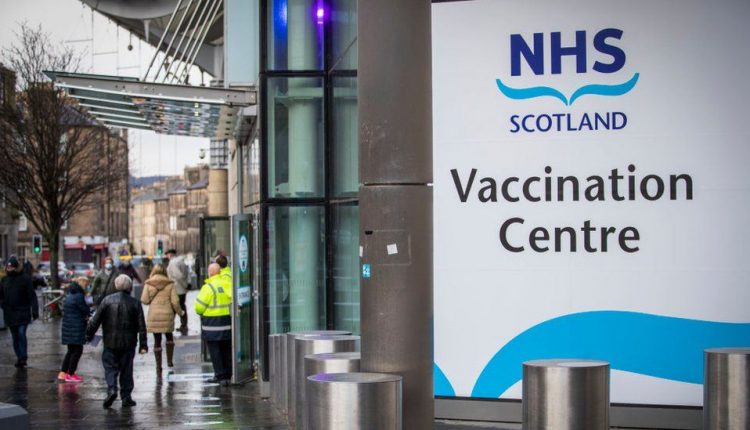Scots urged to limit socialising to three households
People in Scotland have been asked to limit socialising to three households at a time in the run-up to Christmas amid concerns over the Omicron variant.
First Minister Nicola Sturgeon said the advice would not apply on Christmas Day and that plans should not be cancelled.
But she said people should reduce their social contacts with other households “as far as possible”.
Shops and hospitality venues will also be told to bring back physical distancing and screens.
Ms Sturgeon said that Scotland is facing a “likely tsunami” of new infections of Covid-19 in the weeks ahead, with a “very significant” impact on health services.
- Live: Nicola Sturgeon updates MSPs on Covid rules
- Jabs need a major scaling up – but can it be done?
- Covid in Scotland: Where are the latest cases?
“We are working with the governments in Scotland, Wales and Northern Ireland to drive the vaccine rollout to all corners of the United Kingdom and ensure people and businesses all across the country are supported.”
She said: “Before and immediately after Christmas, please minimise your social mixing with other households as much as you can.
“However, if you do plan on socialising – either at home or in indoor public places – we are asking that you limit the number of households represented in your group to a maximum of three. And make sure you test before you go”.
The first minister stressed that she was not asking anyone to cancel their Christmas plans, and that places of worship would remain open.
But she said that people should try to keep their festive celebrations “as small as your family circumstances allow”.
The new guidelines on social mixing will not be legally enforceable, but Ms Sturgeon warned: “Although it is guidance, please do not think of it as optional.”
The Scottish government will provide £100m of funding to help businesses in hospitality and food supply chains which have been hit by advice to cancel work Christmas parties.
And the government is working to identify new mass vaccination centres as part of a push to offer a booster jab to all adults by the end of the month.
Shortly before Ms Sturgeon started speaking, the UK Treasury said it would make extra funding available to devolved governments to accelerate the vaccine rollout and tackle the virus.

Image source, Getty Images
The Omicron variant is believed to be spreading very rapidly in Scotland, with the number of cases doubling every two to three days.
The heavily-mutant variant is expected to overtake Delta as the dominant form of the virus this week.
Ms Sturgeon said that even if the new strain proves milder than Delta, the fact it spreads much faster could still put “significant” pressure on health services.
A new legal requirement will be imposed on businesses to take measures to reduce the spread of transmission.
These will include the return of measures to reduce crowding in shops and at bars, physical distancing and the use of protective screens.
And it will again be a legal requirement for employers to enable staff to work from home where possible.
However schools are to remain open, with Ms Sturgeon saying it was a “key aim to ensure that schools stay open if at all possible to minimise further disruption to education”.
Booster programme
Ms Sturgeon said the new curbs were needed to slow the spread of the virus while the booster vaccine programme is accelerated.
A target of offering appointments to all adults has been set for the end of the month, with the first minister saying the goal was to complete 80% of jabs by then and complete the others early in January.
Booster appointments will be given priority over the remainder of the flu vaccination programme, and the requirement for people to wait in a vaccine centre for 15 minutes before going home will be dropped.
Additional capacity for “drop in” jabs is to be added, while “additional venues” including new mass vaccination clinics are identified.
As well as extra funding to support businesses, the government has added £100m to the self isolation support grant fund, with an expected increase in the number of people asked to quarantine.
The UK government has confirmed that extra funding will be made available to the devolved administrations to deal with the Omicron variant.
Chancellor Rishi Sunak said: “We are working with the governments in Scotland, Wales and Northern Ireland to drive the vaccine rollout to all corners of the United Kingdom and ensure people and businesses all across the country are supported.”

Comments are closed.